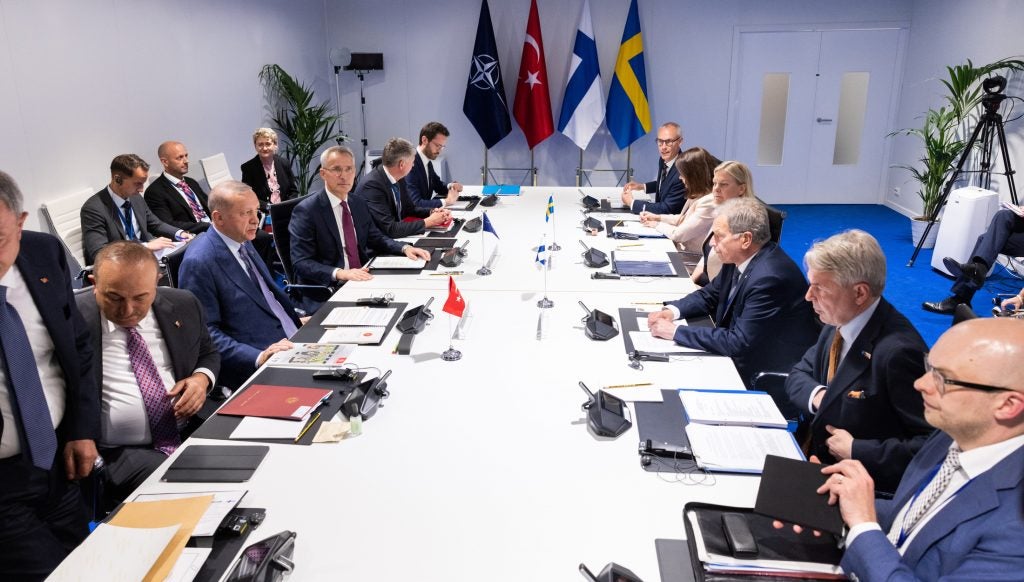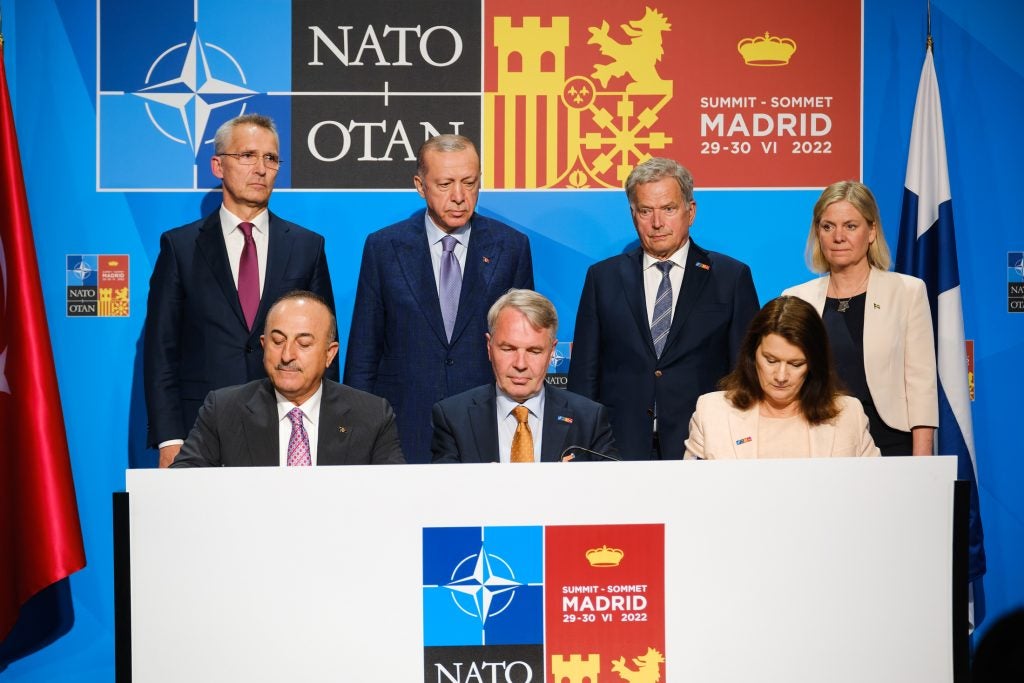Turkey Drops Opposition To Swedish and Finnish NATO Membership
Turkey dropped its previous opposition to Sweden and Finland’s applications to join the North Atlantic Treaty Organization on Tuesday, signing a joint memorandum of understanding with the two Nordic countries to formalize the start of their accession to NATO on the first day of an alliance summit in Madrid.
In exchange for the end of a potential Turkish veto of their membership, the memorandum has Sweden and Finland pledge to not support the Syrian Kurdish Democratic Union Party (PYD) and its People’s Protection Group (YPG) armed wing, as well as the Turkish Gulenist movement. Additionally, both countries will increase cooperation with Ankara against the Kurdistan Workers’ Party (PKK), including through the enforcement of new anti-terror laws in both Sweden and Finland. Towards that, the countries are to establish legal frameworks for extraditions of terror suspects wanted by Turkey in accordance with the European Convention on Extradition, with Turkish extradition requests to be addressed “expeditiously and thoroughly”.
The memorandum also “confirms” that there are no arms embargoes between the countries, with Sweden and Finland to ensure their national regulations on arms exports reflect their status as NATO members.
In a statement issued following the signing of the memorandum, Finnish President Sauli Niinisto said the signing followed a meeting between him, Swedish Prime Minister Magdalena Andersson, and Turkish President Recep Erdogan in Madrid. Also present at the talks was NATO Secretary-General Jens Stoltenberg.

Niinisto’s statement stressed that Finland had always taken Turkish concerns over the threat of terrorism seriously, saying that Helsinki would “commit fully” to NATO counterterrorism policy. Despite expected future developments in counter-terrorism cooperation and extradition agreements, the President said that Finland would “naturally” continue to act in accordance with existing Finnish laws.
Secretary-General Stoltenberg welcomed the signing of the memorandum in a press conference held after the signing, saying that Finland and Sweden would formally become invitees to NATO following the conclusion of the Madrid summit on Thursday. While he expected the ratification of their membership to NATO by other member states to go smoothly, he declined to estimate when the ratification process by various national parliaments would be completed. When asked by a reporter on how the agreement was reached, he merely said that “we met, we discussed and found a good solution”. In response to another question on extradition, Stoltenberg said it was up to the Swedish and Finnish governments to explain what the changes to extradition policy meant in practice.
Stoltenberg described the outcome of the signing of the memorandum as the opposite of what Vladimir Putin wanted with his security treaties in December 2021, saying that Putin’s actions since then had instead resulted in “more NATO” on his borders instead of “less NATO”. Stoltenberg emphasized that NATO respected Finland and Sweden’s decisions to choose their own futures, and that the day’s events demonstrated NATO’s open doors policy.

